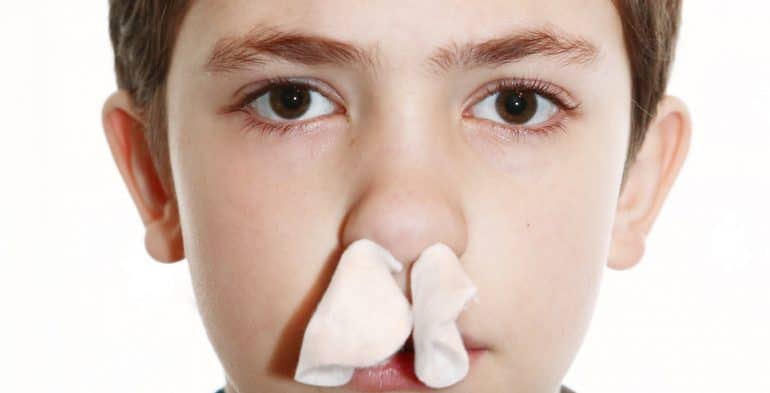
Nosebleeds – symptoms – causes – what to do
Nosebleeds are not normally serious and can be treated at home.
During a nosebleed, blood flows from one or both nostrils. It can be heavy or light and last from a few seconds to 10 minutes or more.
Your child will most probably be fine and there are no special treatments or home remedies for children that are different to those used in adults.
See a doctor if:
- you have regular nosebleeds
- it feels like your heart isn’t beating normally or you’re breathless
- you’re taking a blood-thinning medicine, such as warfarin
- you have a condition that means your blood can’t clot properly, such as hemophilia
Your doctor might want to test you for hemophilia or for other conditions such as anemia.
See a doctor now or go to A&E if:
- your nosebleed lasts longer than 20 minutes
- the bleeding seems excessive
- you’re swallowing a large amount of blood that makes you vomit
- the bleeding started after a blow to your head
- you’re feeling weak or dizzy
- you’re having difficulty breathing
- Causes of a nosebleed
The inside of the nose is delicate and nosebleeds happen when it’s damaged. This can be caused by:
- picking your nose
- blowing your nose too hard
- the inside of your nose being too dry (because of a change in air temperature)
Nosebleeds that need medical attention can come from deeper inside the nose and usually affect adults. They can be caused by:
- an injury or broken nose
- high blood pressure
- conditions that affect how the blood clots or the blood vessels
- certain medicines, like warfarin
Sometimes the cause of a nosebleed is unknown.
Certain people are more prone to getting nosebleeds, including:
- children (they usually grow out of them by 11)
- elderly people
- pregnant women
How to stop a nosebleed yourself
You should:
- sit or stand upright (don’t lie down)
- pinch your nose just above your nostrils for 10 to 15 minutes
- lean forward and breathe through your mouth
- place an icepack (or a bag of frozen peas wrapped in a towel) at the top of your nose
Hospital treatment
If doctors can see where the blood is coming from they may seal it by pressing a stick with a special chemical on it to stop the bleeding.
If this isn’t possible, doctors might pack your nose with special sponges to stop the bleeding. You may need to stay in hospital for a day or two.
When a nosebleed stops
After a nosebleed, for 24 hours try not to:
- blow your nose
- pick your nose
- drink hot drinks or alcohol
- do any heavy lifting or strenuous exercise
- pick any scabs that form (they help it to heal and prevent infection)







